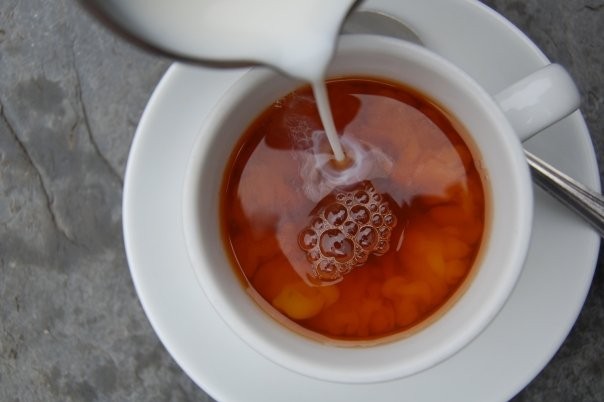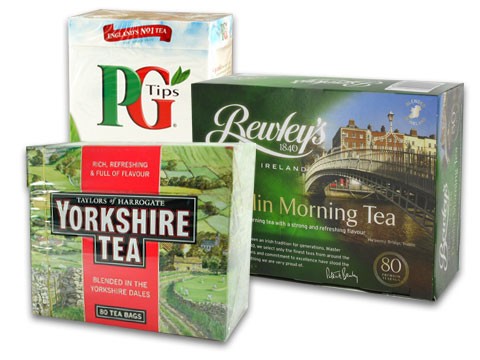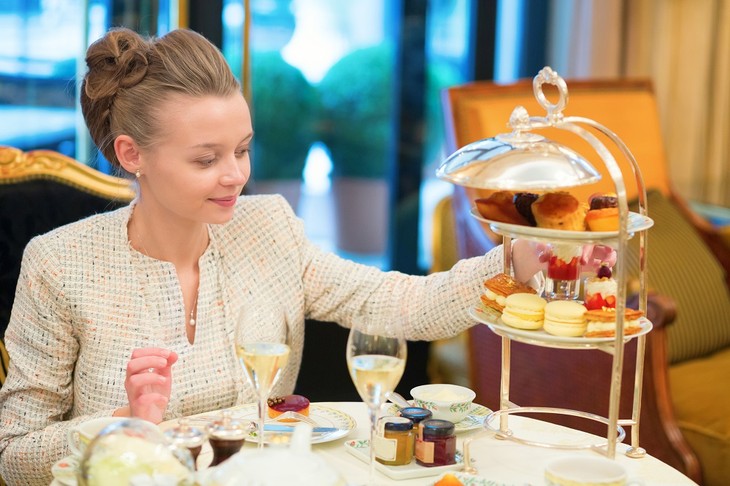(VOVworld) - The British are known for their habits of drinking tea. According to the Tea and Infusions Organisation, the British consume 60 billion cups per year. That’s more than 900 cups a year for every citizen. Tea has become entrenched in the British way of life. Today we meet again with Stella Ciorra, a volunteer from Britain, to learn more about the tea culture of her country.
Q: Hello, Stella! I’m happy to have you again on air. British people are so famous for their love for tea. What about you? Do you like tea?
A: Vietnamese also people also drink tea but it’s completely different. In Vietnam, you’ve green tea or lotus tea. In Britain, we have the normal black tea like PG Tips, Typhoo, and Yorkshire – many different types of black tea. And we normally drink tea with milk. Some people like it with lemon, or with sugar, like what you do here in Vietnam. But, in Britain, the most common way to enjoy tea is with milk. That’s the way I was brought up to have a good cup of tea.
 |
In Britain tea is usually black tea served with milk. (Photo: The English Tea Blog’s Own)
|
What you need is a big tea pot, then you pour in just a little bit of boiling water, then you squish it around in the pot the make it warm inside. Then, you throw the water out. After that, you put in two or three teabags, depending on how strong you like your tea. Then, you put the boiling water in and cover the pot’s top. You let the tea brew, which means you let the tea from the teabag infuse into the hot water. The longer you leave your tea to brew, the strong the tea will be. For example my mom, she likes very strong tea, but I like very week tea. If she makes a pot of tea, I will have the first tea. My mom will keep the teabag in the pot longer. Traditionally, you will prepare a cup or a mug and pour milk in first, then, you pour the tea inside. That’s the way I always make it.
Q: Why are there so many types of black tea? Do they have different flavours?
A: I think so. I think they have different flavours because they are made in different countries or regions. For example, a lot of people like Yorkshire tea, which was made in the Yorkshire region. I quite like it too, it’s mild black tea. It’s quite similar to Lipton teabags but just a little bit stronger. But you also have other types of tea such as Earl Grey or Darjeeling, which have more perfume in them. They are all black tea but have completely different tastes. A lot of people like them and you can still have it with milk. Personally I don’t really like Earl Grey because of the strong smell. Darjeeling also has perfume. So I just love purist British box-standard teabags, which do not have any perfume.
 |
Some famous black tea brands in the UK (Photo: englishteastore.com)
|
Q: But tea is not grown in Britain, is it?
A: Usually we will import tea leaves from India and maybe from Vietnam as well. England does not grow tea. But I assume the teabags are made within Britain.
Q: Is drinking tea something you learnt from Asian countries? Did Britons only start to drink tea when they traveled to the East?
A: No… I don’t know how far it goes back but Britons have been drinking tea for a long, long time, for generations – hundreds of years. It’s quite a British thing.
Q: When do you usually have tea?
A: Well, that depends on the person. My mom only drinks tea. So she will drink two cups of tea when she wakes up and two in the afternoon. When I say cup, some people think it’s as big as a mug. But it’s much smaller. And we have a customs called “elevenses” which means to have tea at 11 o’clock. That’s mid-morning break. In the old days, like 15 years ago, when you worked in the office, you would have a tea lady. She would go around the office, pushing a trolley with teapots for your tea break, which is a 15-20 minute break from work. You could have coffee or water during tea break, but a cup of tea with biscuits was the most common. You could dunk your biscuits in the tea and that would be really nice!
 |
An afternoon tea is usually accompanied by trays of delicious sandwiches and sweets. (Photo: goldentour.com)
|
Q: One thing I notice that Britons usually have some sweet food to accompany a cup of tea. What are they?
A: Digestive or rich-tea biscuit. I guess you can do any type of biscuits, or even cookies, but when I grew up, I always had digestive or rich-tea biscuits with tea because they are all nice and soak-y.
Q: What about the afternoon tea? Is that something only the Queen and Royal members?
A: I think it’s a very different world in Britain compared with 50 or 60 years ago. The coffee culture wasn’t so big and tea was more important. And people then did have a break at 11 o’clock or in the afternoon at 3 or 4 o’clock to have tea. Or now, a really nice thing to do is you go somewhere nice and have afternoon tea as a treat. For example you can go to the RITZ hotel, where they serve afternoon high-tea. You would have to pay quite a lot of money for a nice cup of tea and little cakes, biscuits or little sandwiches – tiny little sandwiches with the crust cut off.
.jpg) |
| Stella believes tea culture remains popular in Britain. (Photo: Daily Express) |
Q: Some people say that the tea culture in Britain is not as strong as in the past because regular tea drinking is on the decline, while the sales of espresso increase. Do you agree?
A: I think the tea culture is still very important in Britain. I don’t know about Vietnam but in my country, when someone is upset about something or sad, or something bad happened, people will say: I will give you a nice cup of tea to help you feel better. I remember when I was little, about 40 years a go, I got into a physical fight with my brother. I was really worried and upset for hitting him. My granny told me to sit down as she made a really strong cup of tea with lots of sugar in it. That made me feel really much better and think every problem was solved. That’s the comforting power of tea.
Thank you Stella for your story about the tea culture in Britain!